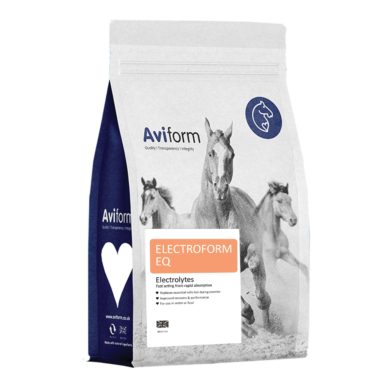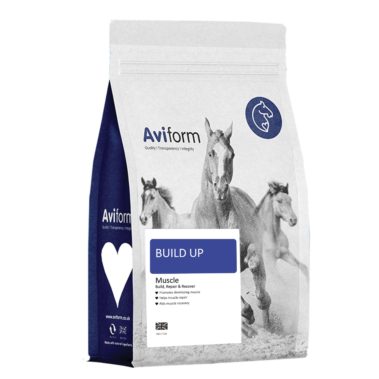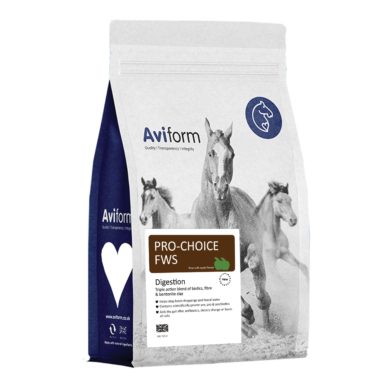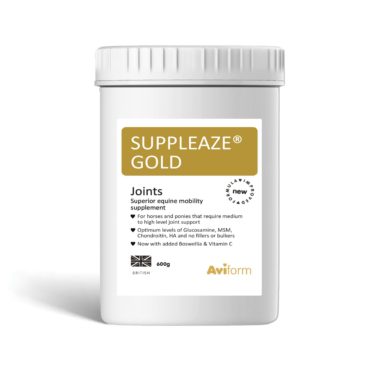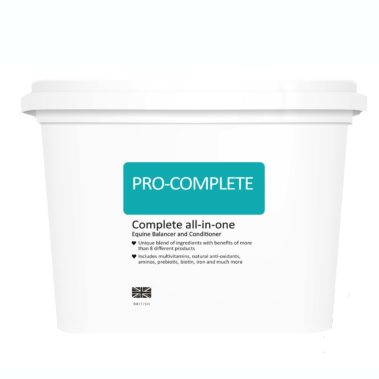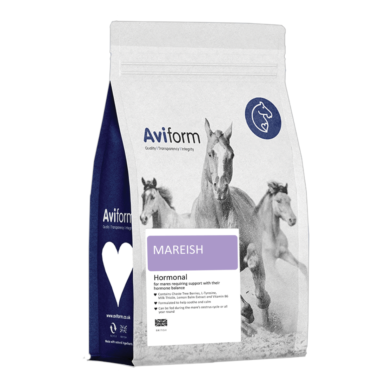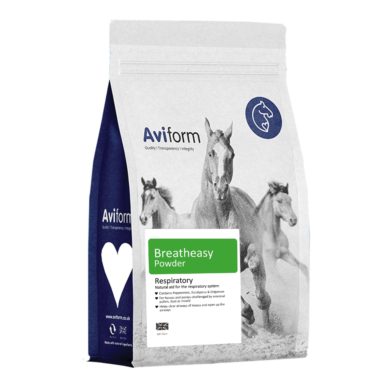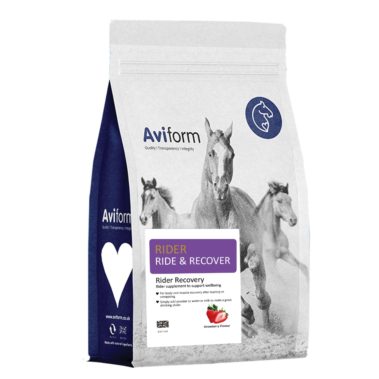LAMINO for Horses
LAMINO for Horses
If your horse or pony experiences bouts of laminitis our palatable Lamino powder supplement is formulated to help recovery and prevention. Now with added Jiagulan to improve the blood flow to the foot.
New pouch with easy Velcro seal
60 Day See the Difference Guarantee


-
When you think your horse or pony is experiencing signs of laminitis they may experience the following:
- an inability or reluctance to walk.
- reluctance to get up after lying down.
- a hoof that is hot to the touch for more than two hours.
- visible lameness on a hard surface or when turning a circle.
- leaning back onto the hind feet (also known as laminitic stance)
- an increased digital pulse in the foot.
Key Ingredients and Benefits in Lamino
Calcium Carbonate Horses with laminitis often experience gastrointestinal discomfort, and calcium carbonate can alleviate these symptoms by acting as an antacid, helping to neutralise excess stomach acid. Calcium carbonate helps buffer the stomach and intestinal pH levels, promoting a healthier digestive environment. This can be beneficial for horses on high-grain diets as it helps mitigate the effects of grain overload, a common trigger for laminitis by neutralising stomach acid and supporting digestive health.
Adequate calcium levels are crucial for various metabolic processes, including muscle function, nerve transmission, and enzyme activity. This support is particularly important for horses recovering from laminitis, as they require optimal metabolic function for healing.
Calcium carbonate also ensures proper calcium levels supports general health and well-being, aiding in the recovery process for laminitic horses and help prevent recurrence.
Soldium Chloride helps maintain proper electrolyte balance, crucial for nerve and muscle function. Horses with laminitis, especially those experiencing pain and stress, can benefit from maintaining optimal electrolyte levels.
Horses with laminitis may experience reduced water intake due to pain or stress. Sodium chloride promotes adequate water intake, essential for maintaining hydration. Proper hydration supports circulation and nutrient delivery to tissues, which is vital for the healing process in laminitic horses.
Sodium chloride aids in the absorption of nutrients in the digestive tract. Ensuring that laminitic horses absorb essential nutrients efficiently is critical for their recovery and overall health. The correct sodium levels help regulate blood pressure and circulation. Improved circulation can enhance the delivery of oxygen and nutrients to the affected hooves, supporting healing and recovery.
Sodium is crucial for muscle contraction and relaxation. Adequate sodium intake helps prevent muscle cramps and stiffness, which can be particularly beneficial for laminitic horses experiencing reduced mobility.
Sodium chloride contributes to maintaining a healthy immune system. A robust immune system is essential for fighting off infections and supporting overall health during the recovery from laminitis.
Ensuring that horses have adequate sodium intake prevents salt deficiency, which can lead to symptoms such as lethargy, decreased appetite, and poor performance. These symptoms can exacerbate the challenges faced by laminitic horses.
Potassium Chloride helps maintain proper electrolyte balance, crucial for nerve function, muscle contractions, and overall cellular function. Maintaining electrolyte balance is essential for laminitic horses, who may experience stress and dehydration. Proper hydration is crucial for blood circulation and nutrient delivery to tissues, which is vital for healing in laminitic horses.
Potassium is essential for proper nerve function. Ensuring adequate potassium intake can help maintain normal nerve function and reduce discomfort associated with laminitis. Adequate potassium levels can also help prevent muscle weakness and cramping, which can be beneficial for laminitic horses that might experience reduced mobility.
Potassium chloride helps maintain the body’s acid-base balance, which is important for various metabolic processes. Proper acid-base balance supports overall metabolic health and recovery from laminitis.
Adequate potassium levels can help reduce inflammation. Since laminitis involves significant inflammation in the hooves, potassium chloride can be beneficial in managing this aspect of the condition. Potassium chloride can aid in the efficient absorption of nutrients from the digestive tract. Proper nutrient absorption is essential for the healing process and overall health of laminitic horses.
Methionine is a crucial building block for keratin that makes up the hoof wall. Adequate methionine intake can improve the strength and integrity of the hooves, which is vital for horses recovering from laminitis. It also plays a role in the synthesis of collagen and other proteins that are essential for tissue repair and healing, accelerating recovery and reducing the impact of laminitis on the hooves.
Methionine supports liver function by contributing to the production of SAM-e (S-adenosylmethionine), which is vital for liver detoxification processes. A healthy liver is crucial for overall metabolic health, especially in horses dealing with metabolic conditions linked to laminitis.
Methionine can help reduce inflammation through its role in synthesising proteins and compounds that have anti-inflammatory properties. This is particularly beneficial for managing the inflammation associated with laminitis.
Methionine is essential for muscle protein synthesis and repair. Horses with laminitis may have reduced activity levels, so maintaining muscle health and preventing atrophy is important.
Methionine aids in the absorption and utilisation of other nutrients, such as zinc and copper, which are also important for hoof health and overall well-being.
Methionine plays a role in various metabolic processes, including the metabolism of fats and proteins. Proper metabolic function is essential for horses recovering from laminitis, especially those with underlying metabolic disorders.
Zinc is essential for keratin synthesis and can improve the strength and resilience of the hooves, which is crucial for horses recovering from laminitis. It plays a critical role in wound healing and tissue repair as it is involved in cell division and protein synthesis, processes that are vital for recovering from the damage caused by laminitis.
Zinc has anti-inflammatory effects, which can help reduce the inflammation associated with laminitis alleviating pain and promoting quicker recovery.
Zinc contributes to the activity of antioxidant enzymes, which protect cells from oxidative stress. Reducing oxidative damage can be beneficial for laminitic horses, whose cells may be under increased stress.
Zinc is involved in collagen synthesis, which is important for the integrity of connective tissues. This can help in maintaining the structural integrity of the hooves and supporting the repair of damaged tissues.
Zinc plays a role in various metabolic processes, including carbohydrate metabolism. Proper metabolic function is essential for horses recovering from laminitis, especially those with underlying metabolic disorders. It is involved in the regulation of various hormones, including insulin. Maintaining hormonal balance is particularly important for horses with laminitis linked to insulin resistance or other metabolic conditions.
Jiaogulan (also known as Gynostemma pentaphyllum). The game changer in hoof care, jiaogulan promotes increased nitric oxide production, enhancing blood flow to the foot. This vital ingredient aids in recovery from hoof-related illnesses, supports circulation, and offers protection against conditions like laminitis by ensuring the hooves are well-nourished and oxygenated.
Jiaogulan has natural anti-inflammatory effects which can help reduce the inflammation associated with laminitis. This can lead to a decrease in pain and swelling in the hooves.
Jiaogulan is known to improve blood flow, which can be beneficial in treating laminitis. Improved circulation helps deliver more oxygen and nutrients to the affected tissues, promoting healing and reducing the risk of further damage.
The herb has strong antioxidant properties, which can help combat oxidative stress. Oxidative stress is often a factor in the development and progression of laminitis, and reducing it can aid in the overall health of the horse.
Jiaogulan helps the body cope with stress which can be beneficial for horses with laminitis, as stress can exacerbate the condition.
-
WHY CHOOSE A SUPPLEMENT?
If you are finding that the right feed and management is not enough to deal with this condition effectively in your horse, then a supplement can give that extra help.
LAMINO KEY BENEFITS
- 100% Natural.
- Very economical and effective.
-
KEY INGREDIENT LEVELS PER 50G Calcium Carbonate 22.7g Sodium Chloride 11.35g Potassium Chloride 11.35g Methionine 3,000mg Zinc Sulphate Monohydrate 755mg COMPOSITION Calcium Carbonate, Sodium Chloride, Potassium Chloride ADDITIVES PER KG Trace Elements : Zinc sulphate monohydrate (15,000mg) (3b605) 5,250mg Amino Acids : DL-Methionine (3c301) 60,000mg ANALYTICAL CONSTITUENTS Crude Protein 11.6%, Crude Fibre 0.1%, Crude Fat 0.1%, Crude Ash 20.7%, Calcium 18.8%, Sodium 11.4%, Phosphorus 2.0% -
Up to 300kg 300kg to 600kg Over 600kg Add to feed each day 30g
2 scoops45g
3 scoops60g
4 scoops1kg - How often do I need my order? Every month Every 3 weeks Every 2 weeks 2kg - How often do I need my order? Every 2 months Every 2 months Every month Additional Information Levels may be adjusted according to the horse's specific needs, or as directed by your vet. Scoop enclosed - 1 level scoop = approximately 15g -


